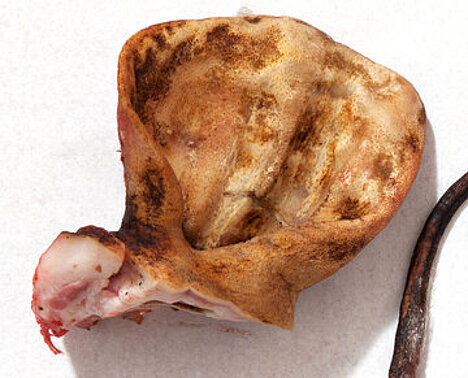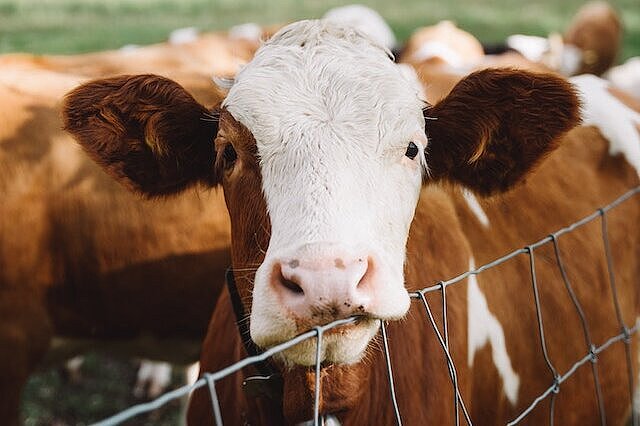Pig ears

Pig's ears are a popular snack for dogs, providing them with a tasty and long-lasting treat. But are pig ears really healthy and safe for your four-legged friend? In this article, you will find out what pig ears are, what advantages and disadvantages they have and what you should look out for when buying and feeding them.
What are pig ears?
Pig ears as a treat for dogs consist of the whole ear of the pig. For this purpose, the pig's ears are cut off and cleaned after slaughter. There are various ways and means of preserving pig ears and preparing them as a treat for dogs. However, the basic principle is the same in all cases: the water is removed from the ears by heating or drying so that they do not spoil. Some manufacturers also add spices or preservatives to improve the taste or shelf life.
What are the advantages of pig's ears?
Pig ears have several advantages as a snack for dogs:
- They are natural and contain no artificial additives if they have not been subsequently treated.
- They are rich in protein and provide your dog with valuable amino acids for muscle building and regeneration.
- They are low in fat compared to other animal products such as rumen or cowhide bones.
- They are easy to digest and do not put too much strain on your dog's gastrointestinal tract.
- They are tooth-friendly and help your dog to clean his teeth and prevent tartar.
- They promote chewing and stimulate your dog's salivation, which is also good for dental health.
- They keep your dog busy and provide a long and exciting chewing task that challenges him mentally and physically.
What are the disadvantages of pig ears?
Pig ears also have some disadvantages as a snack for dogs:
- They can contain Aujeszky's viruses, which can be fatal to dogs. These viruses are transmitted through raw pork and lead to incurable encephalitis in dogs. Although the viruses are normally killed by heating or drying, this may not happen sufficiently. Therefore, you should only buy pig ears from trustworthy producers who guarantee high quality.
- They can trigger allergies if your dog is sensitive to pork. This can manifest itself as skin rashes, itching, diarrhea or vomiting. If you notice that your dog shows such symptoms after eating pig ears, you should stop giving them and consult a vet.
- They can promote obesity if you give your dog too many of them. Pig ears are low in fat, but still high in calories. Therefore, you should only offer them as an occasional treat and adjust the amount to his daily food ration.
- They can cause injuries if your dog eats them too quickly or too greedily. They can injure themselves or even choke on sharp edges or splinters in their mouth or throat. You should therefore always keep an eye on your dog when he is chewing and provide him with plenty of water.
Pig ears are a tasty and natural snack for dogs that offers them many benefits. However, you should also be aware of the possible risks and make sure that you only give your dog high-quality and safe pig ears. You should also adjust the amount to his diet and not spoil him too often. If you pay attention to these points, you can give your dog a great treat and do something good for him at the same time.
If you notice any signs of hypersensitivity or poisoning in your dog, you should see your vet immediately. We are not a substitute for a vet, but we try to be as accurate as possible. Every dog reacts differently and we recommend you get a second opinion or consult your vet if in doubt.
Stay healthy and take good care of your four-legged friend!😊
Similar to Pig ears
Lamb's ears are the dried or fresh ears of sheep. They are often offered as a natural chew for dogs as they provide a long-lasting activity and clean the teeth. Lamb ears consist mainly of...
Beef ears are the dried ears of cattle that can be used as a natural chew for dogs. They consist mainly of cartilage, skin and fur and contain no bones or splinters. Beef ears are rich in protein...

